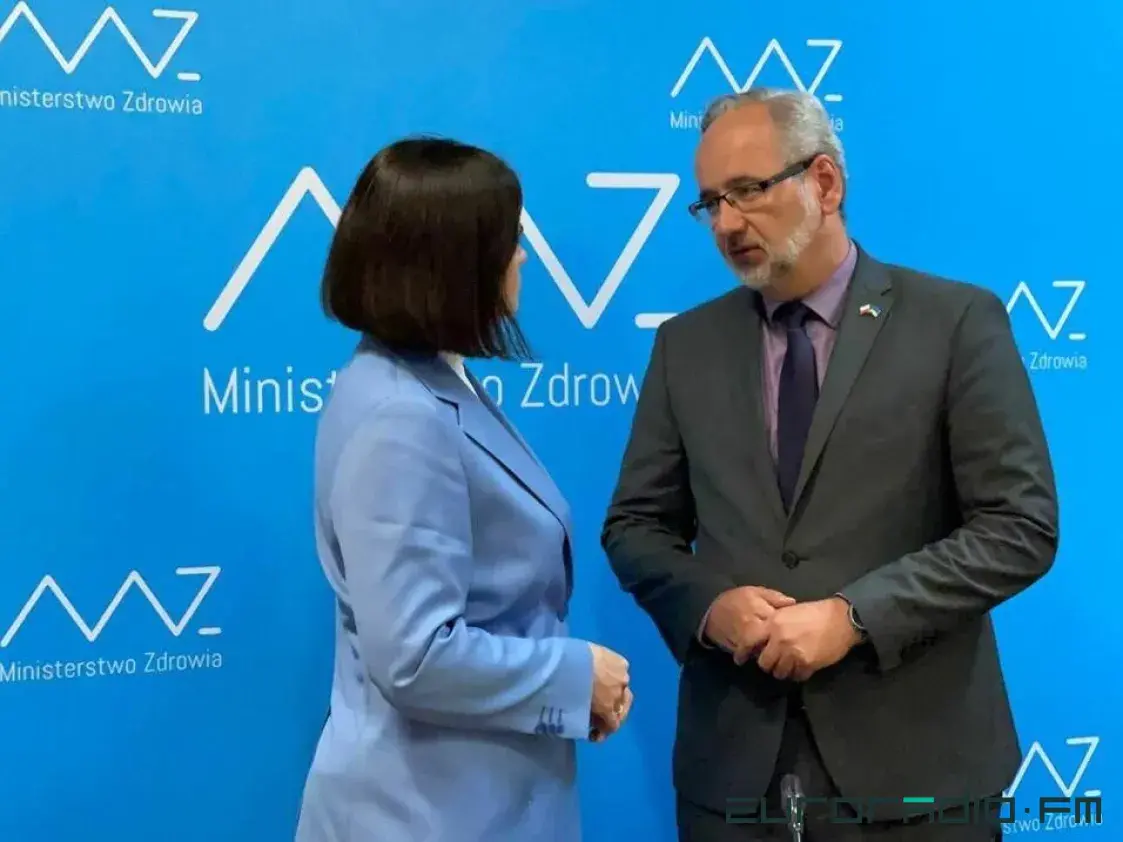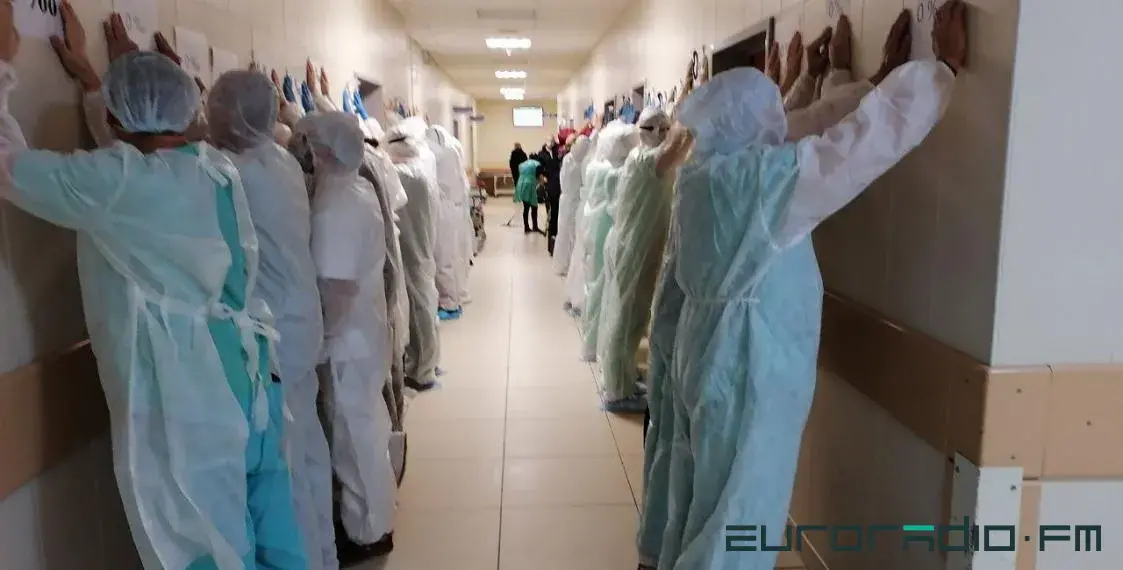Belarusian doctors urge Polish authorities to simplify hiring process

Doctors are not hired due to lack of certificates / collage by Ulad Rubanau
A Belarusian doctor who was concerned about the current situation of his colleagues who moved to Poland has contacted Euroradio. We are talking about both the doctors who immediately moved from Belarus and those who had already worked in Ukraine but, after the war, were forced to change their place of residence and look for work in a new country. These include specialists whose contracts in their home country were terminated for political reasons.
"On July 5th Adam Nedelski, Minister of Health of Poland, agreed with Sviatlana Tsikhanouskaya that Belarusian doctors would be able to find a job there under a simplified procedure," reminds our source. "Also, the Ministry of Health of Poland will not require an apostille and will simplify the requirements for the documents, especially if their receipt requires returning to Belarus. We were promised a simplified scheme for obtaining a permit to practice "in the coming weeks," but medics still face particular difficulties.
Our source quickly points out that no one has any complaints against the Polish Ministry of Health. He knows that since the beginning of 2022, 795 doctors from Belarus have received work permits in Poland under the "covid statute" (however, due to the end of the pandemic, the application procedure under it was canceled, and now doctors have to find employment under different rules).
According to the doctor, the Polish health care system has always accepted physicians from Belarus. Provided they completed the necessary formalities for their legalization in Poland: passed all stages of nostrification, passed the language and medical exams, joined the so-called on-the-job training and passed it. In the covid and post-covid times, the Polish Ministry of Health repeatedly held the Belarusian doctors up as an example.
"But that was back when there were no words 'extremism,' 'terrorism,' and 'pests in white coats' coming off the screens of Belarusian television," the doctor continues. "There were no "blacklists of doctors," which resulted in firing, imprisonment, fines, and persecution of relatives and children of medical professionals. Before the elections, getting any certificate at work in Belarus and confirming the legality of one's documents was possible. Today, any doctor who dials the number of his former boss realizes that they will be immediately reported to the ideological and security officer, who now works in every medical facility. One can only guess what the consequences of this call will be".
Doctor from Belarus? Goodbye!
The physicians who have moved here are subject to complicated procedure of diploma nostrification, recognition of qualifications and experience in any country. Today, this process is complicated by the lack of certain documents from Belarusian universities, the Ministry of Health and the Ministry of Foreign Affairs, as well as other government agencies. Judging by the statements of politicians, the Polish authorities seem to be ready to help, but in practice it is not always visible.
"From personal conversations I know that when some "medicine authorities" (the governing body, like our City Health Department)find out that a doctor is from Belarus, they stop reviewing their documents, understanding that they do not have all the necessary papers anyway," describes the situation our source. "I came this across myself in several clinics, where I tried to get a job. I was told that I needed a certificate from the place of work, saying that I really worked there. Even my employment history is not an argument for them. It must say "certificate", and that's it.
There are ways to solve these issues, and the current legislation allows to do it, because some amendments and paragraphs of Polish laws say "at the discretion" or "in exceptional cases".
I think that most of my colleagues would agree that Belarusian health care workers are in an "exceptional situation", finding themselves without work and without the opportunity to enjoy the regular joy of being needed. Many of them also have no chance to return to their homeland. But the law requires the minister or his deputy to consider such cases, and there's no way to get through to them, because the documents end up in secretariats.
How to simplify the hiring procedure
Belarusian doctors who moved to Poland have suggestions for solving the hiring problem, but due to their lack of knowledge of legislation and the system in general, it is not very clear who they should address.
Here are some of them, in the hope that they will reach the addressee.
The doctors suggest the following:
To temporarily accept for review diplomas without apostilles. In the future, hold separate meetings with such medical workers, or have a special commission examine the legality of documents (just what the Polish Minister talked about with Tsikhanouskaya, but so far changes are not tangible);
to consider equating medical diplomas, which have already been recognized in Ukraine, with Ukrainian diplomas. Also to consider equating medical diplomas of those doctors who have been working in Ukraine for some time (received permission from the employer there or have a local license), lived there legally, and came to Poland after the war broke out;
to alter the need of submitting certificates from the place of work, plans of internship, residency, and make decisions based on diplomas, advanced training courses, available records in the employment records. Subsequently, if necessary, to consider these medics separately.
It is important to note that Belarusian specialists can submit national plans of residency and internship, but unfortunately, the Polish Ministry of Health does not accept them. They only want individual plans, although they differ from the national ones only by the last name and the name on the main title page.

"Today there are still difficulties with legalization of our doctors' papers in Poland," Anastasia Baravikova, a specialist in legalization of foreigners' stay in Poland, told Euroradio. "An Polish clinic owner I know is very interested in employing doctors, but, of course, he cannot go over the law. The problem can only be solved through the Ministry of Health. Does it make sense to write a petition to get the minister's attention? After talking to a lawyer, I learned that such a procedure can be used. But there are no guarantees that it will be responded to".
What about Sviatlana Tsikhanouskaya? Does the leader of the democratic forces of Belarus know that a month and a half after the Minister announced the simplification of the procedure for hiring our doctors, the problem is still there? Is the Office ready to consider doctors' proposals for solving the problem and to continue representing their interests at the state level?
The answer to these questions is that the Office is waiting for suggestions from physicians, as well as concrete case descriptions.
"We will send them to the Polish Ministry of Health. We will coordinate further actions with the Medical Solidarity Foundation," the press office promises.
The vicious circle
As Euroradio learned, the foundation's coordinators were present at a July 5 meeting between Polish Health Minister Adam Nedelski and Sviatlana Tsikhanouskaya. One of them says that there are a lot of unresolved issues behind the beautiful word "agreement".



















